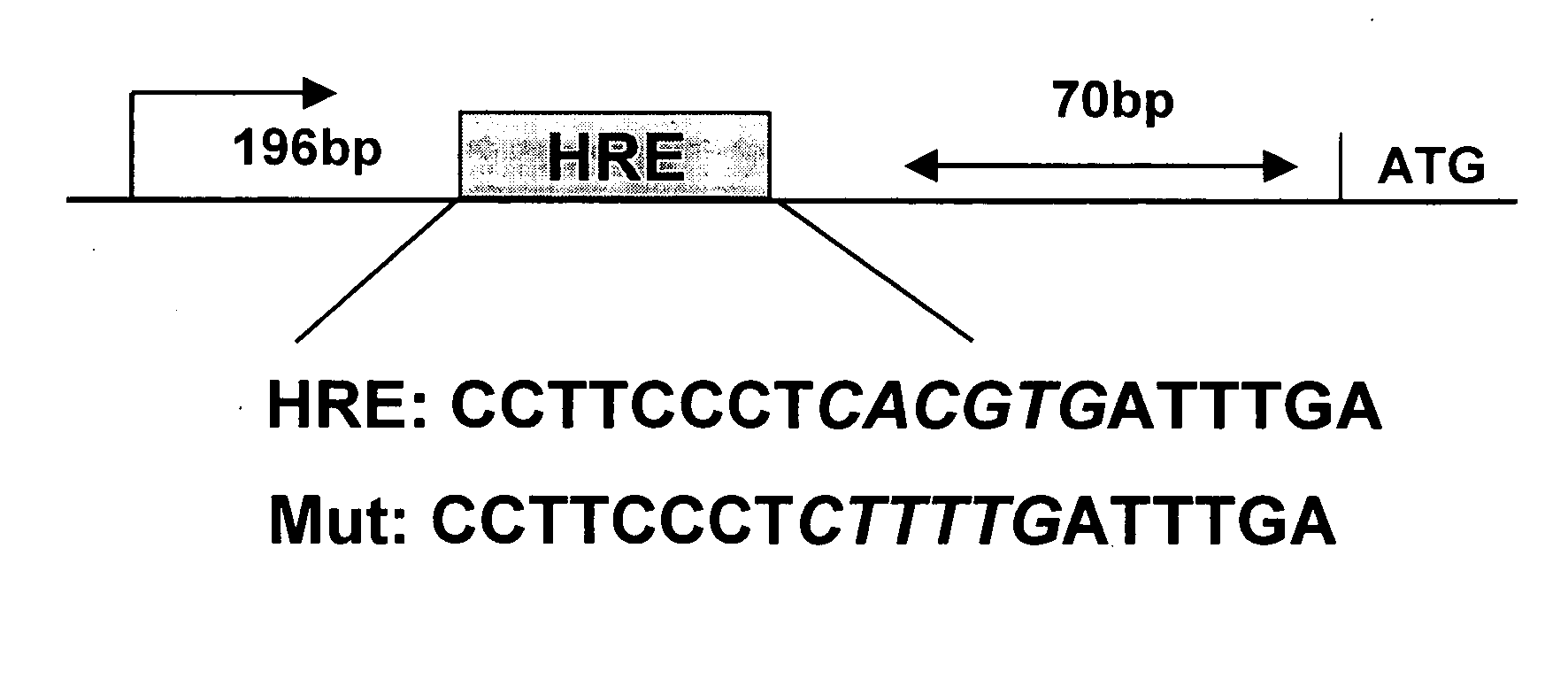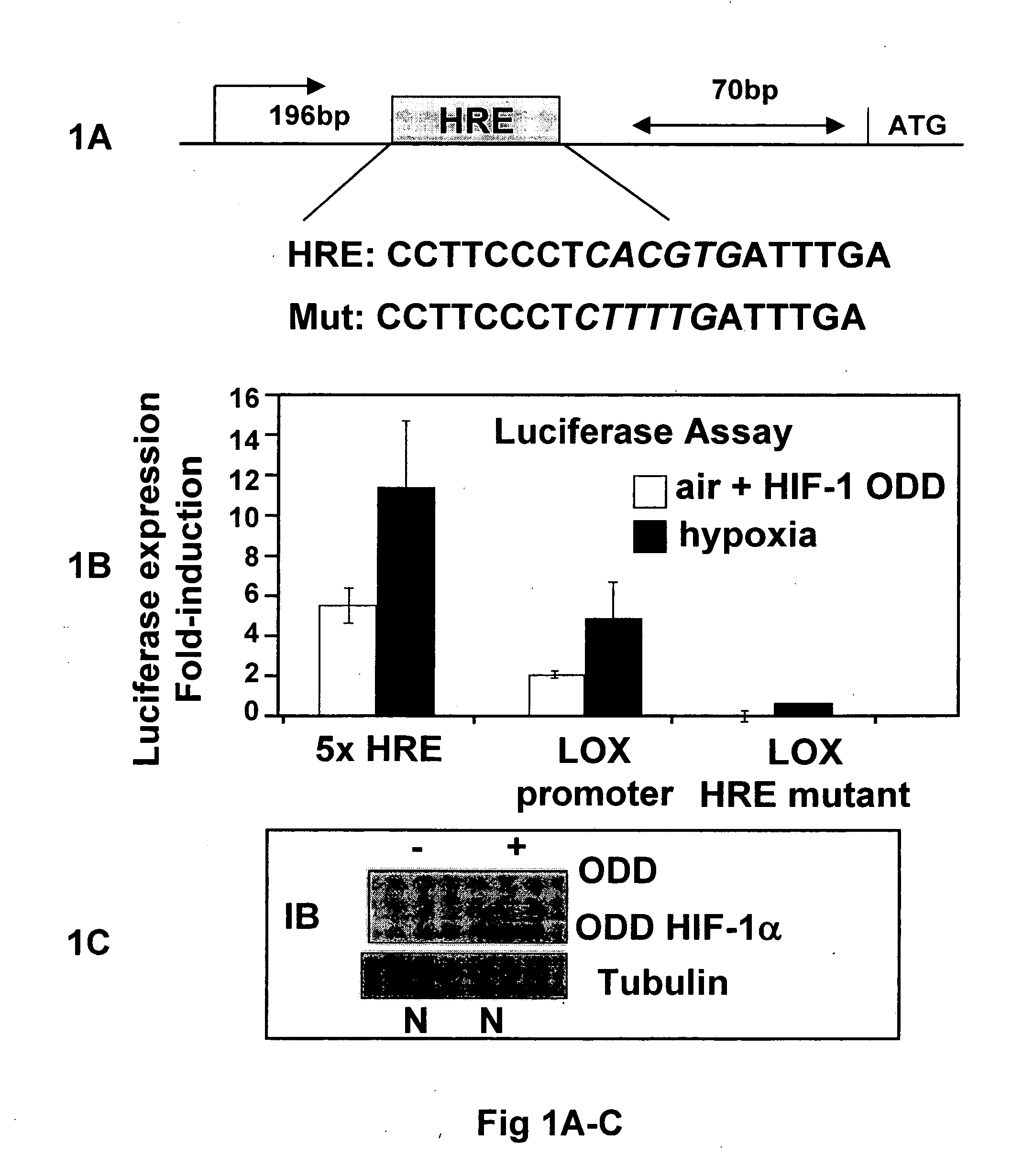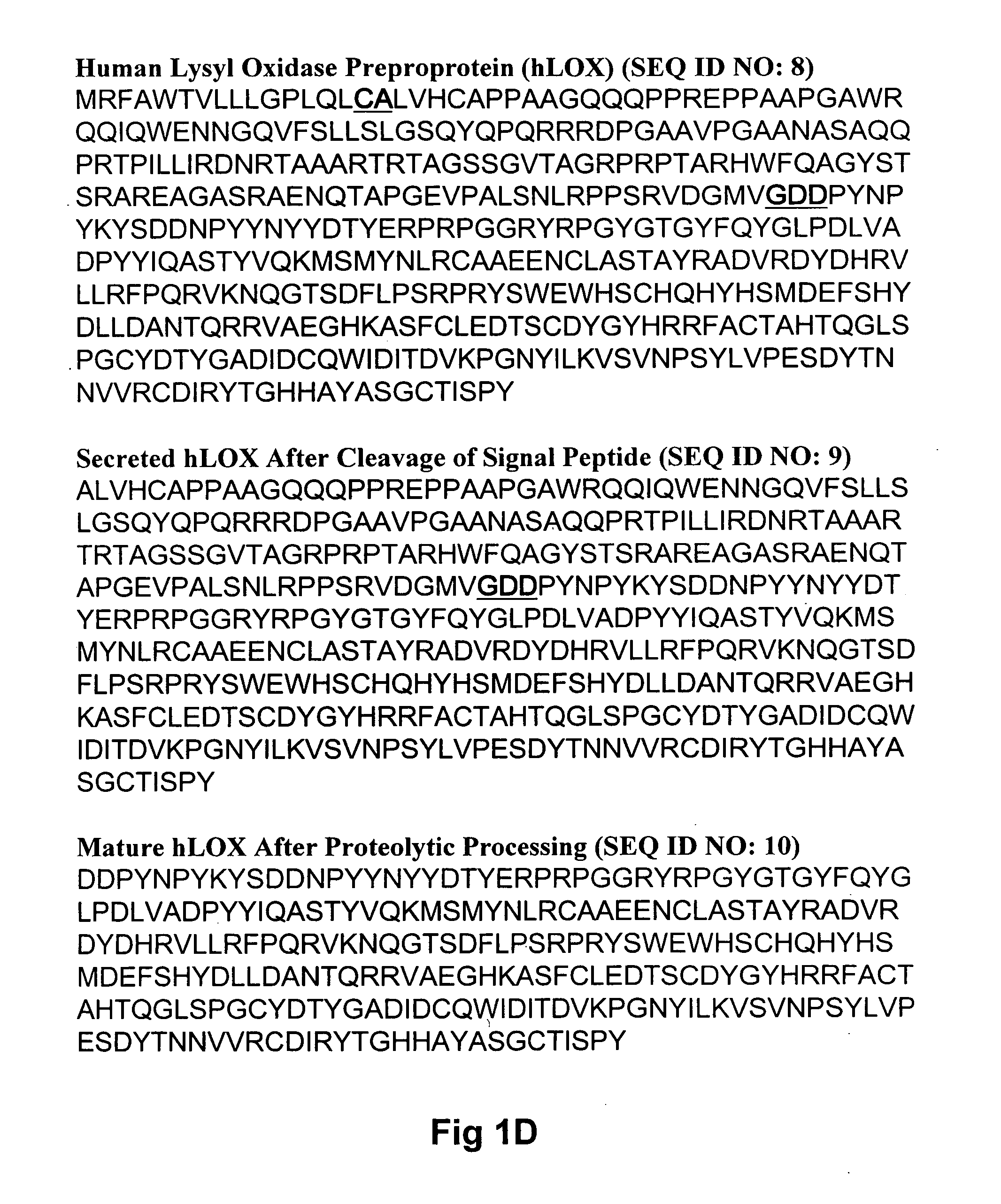Method and composition for treating and preventing tumor metastasis in vivo
a technology of lysyl oxidase and tumor metastasis, applied in the field of medicine, can solve the problems of metastasis and the problem of hypoxic cells, and achieve the effects of reducing viability, inhibiting the expression or biological activity of lysyl oxidase, and increasing the efficacy of chemotherapeutic agents
- Summary
- Abstract
- Description
- Claims
- Application Information
AI Technical Summary
Benefits of technology
Problems solved by technology
Method used
Image
Examples
example 1
Human Cervical Cancer Cells and Breast Cancer Cells Show Increased LOX Expression Under Hypoxic Conditions
[0176] Incubation of human cervical cancer cells and MDA 435 and MDA 231 human breast cancer cells for 18 h under hypoxic (2% oxygen) or anoxic (0.02% oxygen) conditions resulted in elevated LOX mRNA levels (up to 9 fold) compared with normoxic samples (20% oxygen), assessed by semi- and fully-quantitative RT-PCR (data not shown). This was found to be dependent on the hypoxia-inducible factor (HIF)-1, which increased both transcript expression and stability under hypoxia.
[0177] A LOX promoter construct containing up to 1.8 Kb upstream of the LOX translational start site was tested for hypoxic responsiveness employing a standard luciferase assay system. Under normoxic conditions, HIF-1α is rapidly degraded by the proteasome via a mechanism involving the von Hippel Lindau (VHL) ubiquitin E3 ligase1. Cells lacking VHL express HIF-1α constitutively and thus demonstrate active hypo...
example 2
Engineered LOX Promoter Constructs can Modulate Hypoxic Responsiveness
[0178] Examination of the human LOX promoter revealed numerous potential hypoxia responsive elements (HREs) to which HIF-1 could bind and regulate gene expression. The LOX promoter sequence was cloned into pGL3-Basic (Promega) and mutated by site-directed mutagenesis (Stratagene), in accordance with the manufacturer's instructions. A positive control containing five hypoxia-responsive elements (HREs) was used. The promoter fragments tested were originally isolated and described by Csiszar et al33, and show some hypoxia responsiveness in oxygen deprived conditions (FIG. 1 middle panel, black bars). To investigate the role for HIF-1 in transcriptionally regulating LOX, cells were transfected with the ODD mutant construct (see above) such that they expressed high levels of HIF-1α protein in air (lower panel FIG. 1D). Luciferase expression was induced in these aerobic cells when they were transfected with the LOX pro...
example 3
Stability of LOX Transcript
[0179] The stability of the LOX transcript was examined. Addition of actinomycin D (an inhibitor of transcription) caused a gradual decrease in LOX mRNA levels over time both in air and hypoxia. However, the stability of the LOX transcript was clearly elevated under hypoxic conditions. Ablation of HIF-1α expression by transfection with siRNA dramatically reduced LOX mRNA stability in hypoxia.
[0180] Quantitative RT-PCR was performed to assess LOX mRNA levels, which were normalized to 18S rRNA levels then to LOX mRNA levels at time Oh after actinomycin D addition. As shown in FIG. 2, data was plotted as intra-experimental mean±standard error for triplicate readings. Expression levels were compared to those of cells transfected with HIF-1 alpha targeting siRNA (hypoxia no HIF; previously described47 24 h prior to oxygen deprivation, to investigate HIF-1 involvement. Ablation of HIF-1alpha protein expression levels was verified by Western Blot. Cells transfe...
PUM
| Property | Measurement | Unit |
|---|---|---|
| molecular weight | aaaaa | aaaaa |
| temperature | aaaaa | aaaaa |
| temperature | aaaaa | aaaaa |
Abstract
Description
Claims
Application Information
 Login to View More
Login to View More - R&D
- Intellectual Property
- Life Sciences
- Materials
- Tech Scout
- Unparalleled Data Quality
- Higher Quality Content
- 60% Fewer Hallucinations
Browse by: Latest US Patents, China's latest patents, Technical Efficacy Thesaurus, Application Domain, Technology Topic, Popular Technical Reports.
© 2025 PatSnap. All rights reserved.Legal|Privacy policy|Modern Slavery Act Transparency Statement|Sitemap|About US| Contact US: help@patsnap.com



